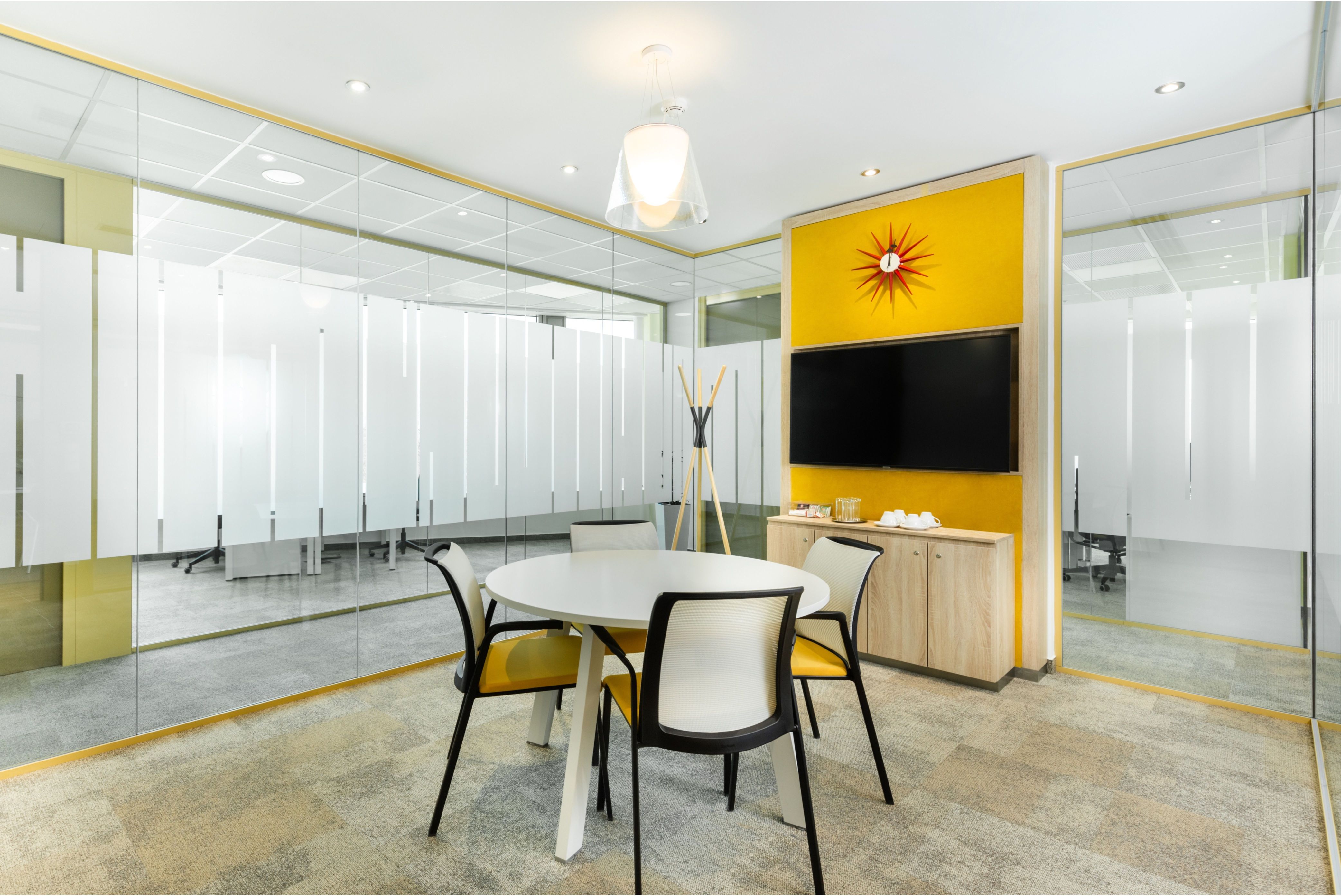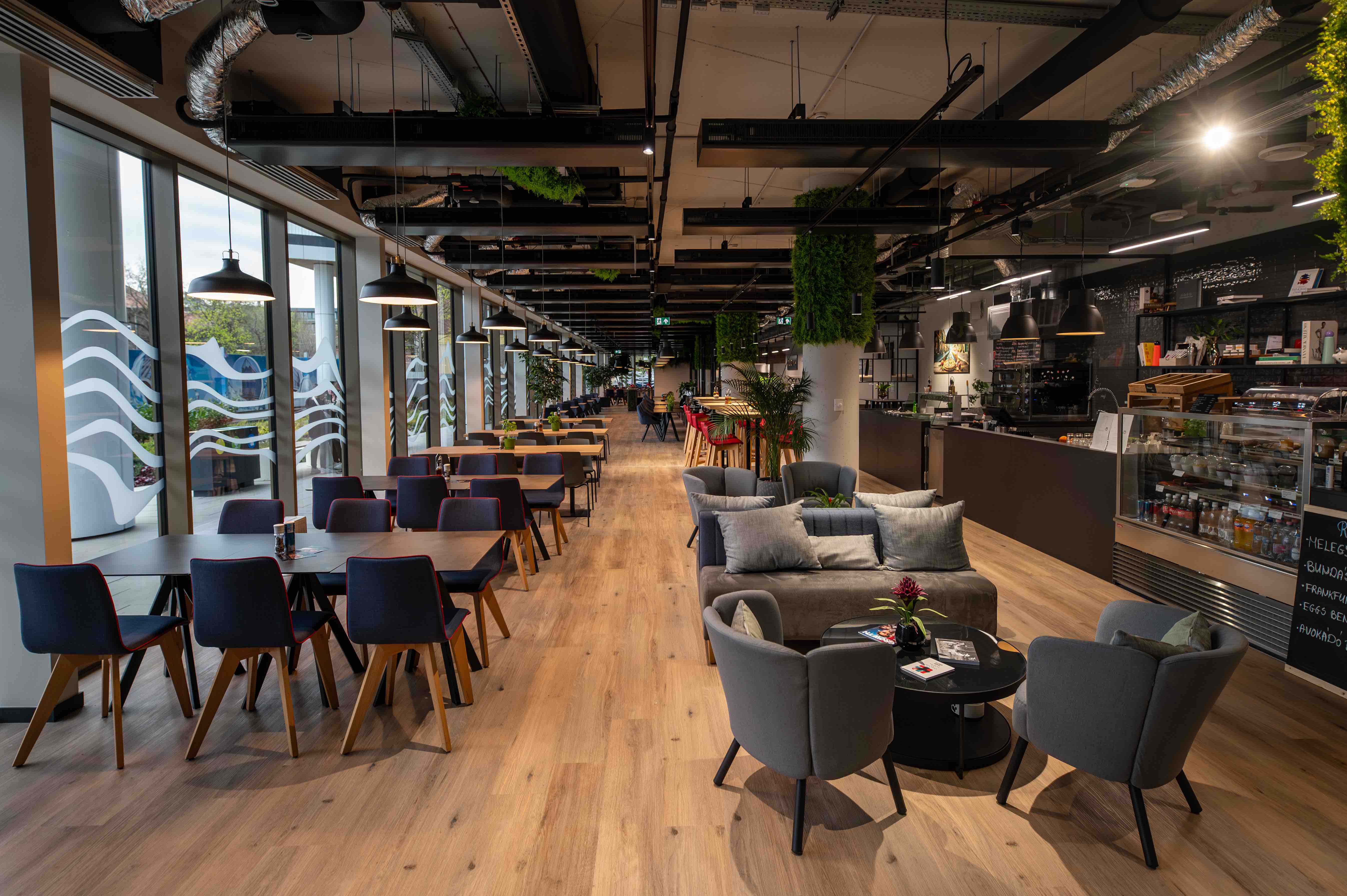The Office is Dead, Long Live the Office

There was a lovely cover on a recent issue of the New York magazine: a black and white shot of an empty office, looking across the floor and out through all but floor-to-ceiling windows towards the Manhattan skyline. The headline was “Remember the Office?”
The office in the photo appears deserted. It could be a symbol of the working reality amid today’s pandemic. If so, does it represent the beginning of lockdown, desks left in a hurry as employees move overnight to the home office? Or does it suggest something more positive, a workspace quietly awaiting the return of human life?
In truth, the photo was all about the onward march of bright and shiny modernity when Ezra Stoller took it in the then newly completed Seagram Building in 1958. But to my mind, viewed today, it represents an optimistic moment; the vaccine rollout continues at pace, restaurant terraces are reopening, primary school children are back in the classroom, and please God, those in secondary schools will soon follow.
This issue of the Budapest Business Journal includes a special report dedicated to the office. There are many open questions about its exact role, the space requirements, the balance between working from business premises and doing so remotely. But, as one of our interviewees says inside, at least one key argument has been settled: we need offices, and they are here to stay.
That alone must be an enormous relief to the investors and developers of this world. However skeptical they might have been in the face of those proclamations about “the death of the office” at the start of the first lockdown, it is always better to have your thesis tested and proved.
With the big question now out of the way, attention can turn to various smaller matters, and here, one word cropped up time and again when we spoke to the market players: flexibility. It applies to everything from lease terms to how – and when – to use office space. Bright and shiny modernity, in its current guise of digitization and new technologies, will also become more critical. New buildings must already be kinder to the global environment (less polluting and invasive, more integrated and circular), but now they have to consider our working environment too. Expect more touchless touches, more natural light, more fresh air.
Our market players seem broadly positive, but then again, you would expect them to be so; there is no point in building offices unless they can persuade us to sit in them, and a glum disposition is not going to make that easier to achieve.
Opponents of space exploration or Formula 1 motor racing always question the expense when we can’t, for example, properly feed the world. Proponents point to the trickle-down benefits of technologies developed to work at the cutting edge (not to mention the stat cited in a Huff Post article, amongst others, that estimates a USD 7-14 return on investment for every USD 1 of NASA expenditure). The budgets won’t be anything like the same, of course, but it feels a little like that might be where office development is heading. New offices have to be increasingly energy efficient because EU laws demand it, but so do many of the brightest talents companies want to hire. Building for a post-pandemic world means those buildings must also become smarter, quicker. It could well be an exciting few years for the people who build offices, and those of us that work in them too.
Robin Marshall
Editor-in-chief
This article was first published in the Budapest Business Journal print issue of May 7, 2021.
SUPPORT THE BUDAPEST BUSINESS JOURNAL
Producing journalism that is worthy of the name is a costly business. For 27 years, the publishers, editors and reporters of the Budapest Business Journal have striven to bring you business news that works, information that you can trust, that is factual, accurate and presented without fear or favor.
Newspaper organizations across the globe have struggled to find a business model that allows them to continue to excel, without compromising their ability to perform. Most recently, some have experimented with the idea of involving their most important stakeholders, their readers.
We would like to offer that same opportunity to our readers. We would like to invite you to help us deliver the quality business journalism you require. Hit our Support the BBJ button and you can choose the how much and how often you send us your contributions.









